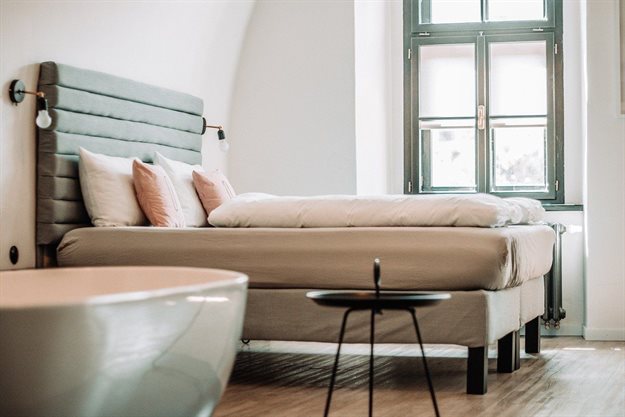Minimalism - once a niche art movement - is now a mainstream lifestyle trend. We have Marie Kondo, the Japanese organising guru and Netflix sensation, urging us to discard anything that doesn't 'spark joy' while The Minimalists encourage us to live meaningful lives with less. As a concept, minimalism is showing no restraint and no signs of slowing down.
Is minimalism just the fad of the moment, or is the underlying philosophy one that will have a far-reaching social and economic impact on people?
Looking at the context in which this trend has developed, we must acknowledge the habits that typify the millennial generation. Effectively priced out of the housing market, this demographic – those aged between 18 and 40 and living across the globe – have gained the nickname ‘Generation Rent’, which reflects their inability to buy their own homes.
Positive connotation
While the origins may stem from a negative scenario, the concept has now taken on a positive connotation and expanded to reference a growing global preference for access rather than ownership. International research suggests ownership is increasingly deemed overrated. In fact, this growing aversion to ownership has been described as the “growing population of consumers who are willing to pay good money for the privilege of not having to own something”. In essence, this demographic wants variety, choice, flexibility and convenience - all of which are possible through the less onerous model of rental.
Our attitudes, preferences and way of life in the 2020s are simply no longer compatible with an old-school mindset when it comes to acquiring items. The days when people saved for months to buy a lounge suite that would be made to last for decades are gone.
Fertile ground for the rental economy
These cultural shifts are fertile ground for the rental economy to take hold as the ‘new retail’, that offers access over ownership. It is most well-known through the popularity of platforms like Airbnb and Uber. The rental economy posits that it is more efficient to rent the items that we need in our daily lives, as opposed to owning them outright and being responsible for the care, maintenance and storage of the items. With rental, the burden of fixing or replacing the item is on the provider and not on the consumer. The consumer continues to enjoy access to the product, without the risk and responsibility that comes with ownership. It’s the ultimate minimalist way of life - eliminating ‘distractions’ to allow yourself the time and energy to focus on what matters most to you.
Responsible consumption
In addition, rental perfectly aligns to the philosophy of minimalism. Since it encourages responsible consumption and an intentional, purpose-driven relationship with objects, be it appliances, clothing or electronics, access to goods trumps ownership. With rental the consumer gains all the convenience of ownership in the form of utility, but without the burden associated with ownership. Key to the issue of responsible consumption is that, when a consumer rents an item and it eventually no longer works, the consumer is not burdened by the responsibility of the eventual discarding of the item, which aligns perfectly with the notion in minimalism that we should not be burdened by our material possessions.
Just as with minimalism, access to items is about flexibility. Internationally, rental providers are seeing an appreciation by customers of the core issues they want: variety, choice, flexibility and convenience.
As the preference for access over ownership grows - which the global trend suggests is taking place - a more minimalist way of life is surely inevitable. And that’s definitely not a bad thing.





























